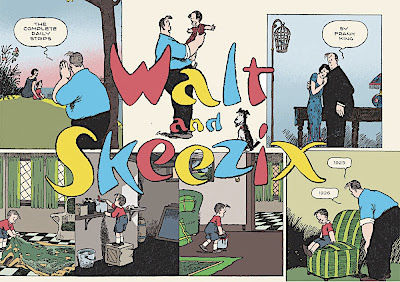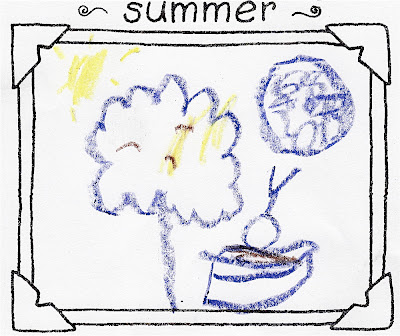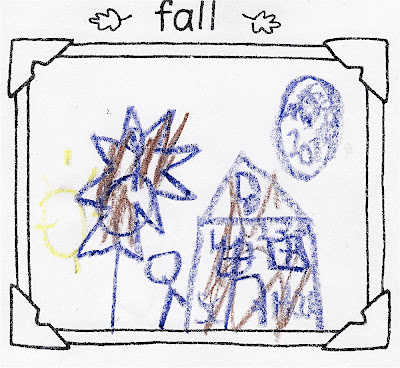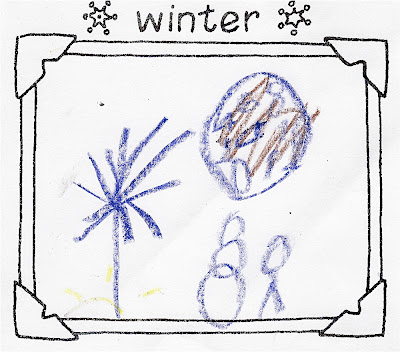Anonymous asks:
I am struck with the number of people in so called main line denominations who recite the Apostles Creed every Sunday, with vigor, and yet a lot of those same people question the Bible's authenticity in matters of doctrine. Do they speak a lie every week? Is it just a tradition like going to church on Sunday, or are they just confused?
Some are lying. Some are following tradition. Some are confused. I have no doubt that among the untold millions of Christians who recite an ancient creed each Sunday (
Apostolic or
Nicene), there are those who fall into the above three categories.
But there are many who do not. There are many who are speaking the truth when they claim in the words of the creed to believe in this (Father), that (Son), and the other (Holy Spirit), yet at the same time do not hold to the infallibility or plenary verbal inspiration of Scripture. How is this possible?
Because the creed, like the Bible, is an ancient document full of ancient ideas. Many of these ideas depend upon philosophical constructs that almost no Christian still uses. It is full of cryptic language, anti-heresy slogans, and dense, telegraphic claims about extremely complex theological matters. And all of it, like the Bible, has to be interpreted. Those black boxes of meaning contained in words like "Son of God," "eternally begotten," "God from God," "begotten not made," "of one being" (to take a series of phrases from only a couple of lines of the Nicene creed) have to be unpacked. They are not clear, plain English like "Here is the red apple." They are profoundly odd. And people in the pews each Sunday interpret it in bewilderingly diverse ways, yet can connect their interpretations back to the mirror of the creed.
Creeds originated as instruments of thought control, designed to root out wrongthinkers and bind everyone to a standardized set of concepts and relationships. But given the esoteric nature of most of the theological debates that led to the credal language, it's not surprising that most people in the pews just made up their own minds about what the words meant. By the Middle Ages, that had led to elaborate folk cosmologies, christologies, soteriologies, and ecclesiologies passed down from layperson to layperson, or thought up anew when an existing explanation proved insufficient. The creeds do not come packaged with a manual explaining their meaning -- and even if they did, the system of concepts that are behind those meanings -- Platonic and Aristotelian, anti-Docetist and anti-Arian -- would be bewildering to any lay person, let alone to those centuries removed from the debates and worldviews that led to the language. Read Ginzburg's
The Cheese And The Worms: The Cosmos Of A Sixteenth-Century Miller to get a sense of the wacky ideas -- combinations of interpretations of Church teaching and what passed for peasant common sense -- that the Roman Catholic Inquisition found once it started digging. The ideas were so strange that the Inquisition felt they had to be due to demon possession or some powerful and malicious heretical conspiracy. Yet it's clear to us that it's just people doing what people do when asked to sign on to some cryptic system of rituals and beliefs. They figure out as best they can what's going on, and that's what they believe. We still do that -- we have to. The creeds do not interpret themselves. Somehow their ancient phrases and assertions have to be translated into our world and harmonized with what we already know and cannot put aside.
I'll never forget a student of mine some years ago who was a devout evangelical Christian. Sitting in my office one day, we began talking about the Trinity, and I asked her what she thought the Holy Spirit was. Well, she explained, the Holy Spirit is a messenger created by God to be with us here on earth. Created, I asked? So the Holy Spirit is not God? Oh no, she said. The Holy Spirit is not as important as God or Jesus. The Holy Spirit serves God and Jesus.
She got somewhat upset with me when I told her that she was a heretic, according to the orthodox Christian views defined at Nicaea. Naturally so -- she heard me telling her that she wasn't a Christian. She has every right to hold heterodox opinions about the Holy Spirit, of course, and I told her so. But she thought that she was holding orthodox ones, and was dismayed -- even incredulous -- to be told otherwise. And I think we can all understand her reaction. She had made what seemed to her perfect sense of the way she heard her tradition talking about God, Jesus, and the Holy Spirit. Put an alien from Mars in her church for a year with a translation device, and he'd come up with something similar (if not weirder). What I was saying were the "correct" beliefs seemed to her to be nonsense. And I'll wager that not one churchgoer in a hundred thousand holds orthodox opinions on the Trinity, the dual nature of Christ, or sacramental theology, according to their own traditions.
Because these doctrines are strange. They are mysteries, by most orthodox theologians' own admission. Yet we are asked to subscribe to them verbally week after week. Of course we are telling the truth, but we are telling a truth (more or less self-consciously) that differs substantially from the truth the writers of the creed were telling. How can it be otherwise? We are removed from those writers in culture, worldview, philosophy, science, religious practice and religious understanding. A phrase as common in our churches as "forgiveness of sins" relies on a host of other ideas -- what are sins, why do they need to be forgiven, how does this forgiveness take place, what does it all have to do with baptism (to which it is connected in the creed) -- none of which are obvious from the words of the creed, all of which have probably been explained to us through metaphors and comparisons with our own experience as well as references to Scripture, and which we've had to put in some kind of relationship with other beliefs and knowledge we hold.
The parishioners at my church are not lying when they recite the creed, although those I've taught in Sunday school classes include little inerrancy among their diversity of views about Scripture, and many would consider the Bible to be only one among many books of sacred wisdom. I was hesitant about reciting the creed for a time, especially certain parts of it to whose traditional understanding I could not accede. But I've embraced the necessity, and therefore the imperative, of interpretation (especially in the Anglican tradition, whose genius is to conform us in practice without attempting to conform us in doctrine beyond the ancient formulae). What we must do, we have freedom to do according to conscience. We exercise that freedom together, in fear and trembling but in solidarity. And in that we are bound together more strongly than any technique of doctrinal conformity can ever hope to achieve.









